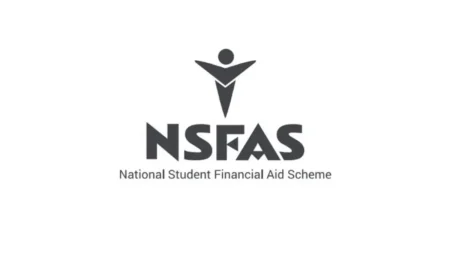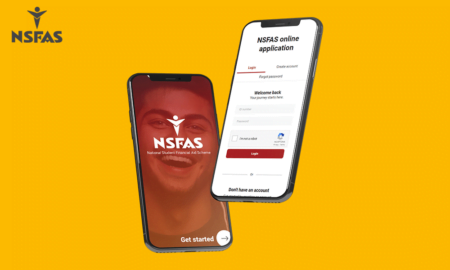For many South African students, the National Student Financial Aid Scheme (NSFAS) is a critical support system that helps fund their education and accommodation. Whether you’re a first-time applicant or need to renew your funding, understanding the ins and outs of NSFAS accommodation can help ensure that you don’t miss out on crucial support. In this article, we’ll answer the most frequently asked questions about NSFAS accommodation funding, from eligibility to the application process.
Who Qualifies for NSFAS Accommodation Funding?
NSFAS accommodation funding is available to South African citizens and permanent residents who meet the financial eligibility criteria set by NSFAS. The key requirement is that the combined household income must not exceed R350,000 per year. Students must also be registered at a public university or Technical and Vocational Education and Training (TVET) college in order to apply for accommodation funding.
If you meet these criteria, you can apply for NSFAS funding, which includes support for accommodation. This funding can help you secure a place to stay while you study, especially if you are far from home.
How Do I Apply for NSFAS Accommodation?
The process of applying for NSFAS accommodation is simple and straightforward. Here are the steps:
Log in to your myNSFAS account: You can access your account online and start the application process. If you don’t have an account, you can easily create one on the NSFAS website.
Browse the list of NSFAS-accredited accommodation: NSFAS only funds accommodation that meets specific criteria. You’ll need to select from a list of approved accommodation providers near your university or college.
Apply for your preferred accommodation: Once you’ve found the accommodation that fits your needs, complete the application form.
Confirmation: You will receive an email or SMS confirming your accommodation reservation once it’s been processed and approved.
What is Accredited Accommodation?
Accredited accommodation refers to housing that has been approved by both the Department of Higher Education and Training (DHET) and your institution. These accommodations must meet specific standards that ensure student safety and comfort. Only accredited accommodations are eligible for NSFAS funding, so it’s crucial to verify that your chosen accommodation provider is listed by your university.
How Do I Know if My Accommodation is Accredited?
To ensure that you are applying for accommodation that will be covered by NSFAS, check your university’s official list of accredited accommodation providers. If the accommodation you are interested in is not on this list, NSFAS will not cover the cost of your stay. If you’re unsure, always confirm with your university’s student housing office or financial aid office before committing to any accommodation agreement.
Does NSFAS Pay for Private Accommodation?
Yes, NSFAS does cover private accommodation expenses, but only if the property is accredited. To apply for private accommodation funding, you’ll need to submit the following:
Your signed rental agreement
Proof of the accommodation provider’s accreditation
Proof of address
NSFAS will pay the accommodation provider directly, either on a monthly basis or through your student card, depending on the arrangement made with the provider.
Does NSFAS Pay Accommodation Deposits?
Unfortunately, NSFAS does not cover accommodation deposits. Accredited accommodation providers are not allowed to request deposits, top-up fees, or any additional upfront payments from NSFAS-funded students. If your chosen accommodation requires a deposit, it will be your responsibility to pay it yourself.
What is Included in the NSFAS Accommodation Fee?
The NSFAS accommodation allowance covers several essential services to ensure students have a comfortable living environment. These typically include:
Water and electricity: The cost of utilities like water and electricity is covered by NSFAS.
Wi-Fi: Most accredited accommodations provide Wi-Fi, and this cost is included in the accommodation fee.
Cleaning of communal areas: Common areas such as kitchens, lounges, and bathrooms are cleaned regularly.
Basic furniture and kitchen appliances: The accommodation should come furnished with essential items like beds, chairs, and kitchen appliances.
Security features: Accreditation standards require that accommodation includes security features like gates and lockable rooms.
Gardening services: If applicable, gardening services are also covered.
How Much Will NSFAS Pay for Accommodation?
NSFAS provides an allowance for accommodation, but the amount varies depending on the type and classification of the accommodation. For example, at North-West University (NWU) in 2025, the maximum amount for a single room could range from R33,100 to R47,700 per year. If the accommodation fees exceed these amounts, you will be responsible for covering the shortfall.
How and When Are Accommodation Payments Made?
The payment process differs depending on whether you are staying in university residence or private accommodation:
University residence: NSFAS pays the university directly for your accommodation.
Private accredited accommodation: NSFAS pays the accommodation provider on a monthly basis, provided your application and documents have been approved. In some cases, you might receive your allowance via your student card, which can be used to pay the landlord.
Can I Move to Another Accredited Accommodation?
If you decide to move to a new accredited accommodation provider, you must give 30 days’ notice to your current landlord and notify your university’s Student Finance Office. You will also need to submit a new lease agreement to ensure that the accommodation payments are redirected to the new provider.
Can I Receive Both Transport and Accommodation Allowances?
No, NSFAS only provides funding for one type of allowance. If you live away from home, you can receive accommodation funding. If you live at home and commute to your institution, you can receive transport funding instead. You cannot receive both allowances at the same time.
What Should I Do if My Application or Payment Is Delayed?
If your NSFAS application or payment is delayed, check the status of your application on your student portal. If there are any issues, ensure that all documents have been submitted correctly. If everything seems in order, but the issue persists, contact your university’s Financial Aid office for assistance.
How Do I Report Scams or Complaints About Accommodation?
If you encounter suspicious accommodation providers or scams, report them to your university’s accreditation or complaints office. Always verify accommodation claims before paying any money, and never pay any deposits or additional fees unless the accommodation provider has been officially verified by your institution.
What Happens if I Stop Staying at the Accommodation?
If you stop living in your NSFAS-funded accommodation, it’s essential to notify both your accommodation provider and NSFAS. This will prevent any further payments from being made and avoid contractual issues. You may also be required to provide documentation confirming that you’ve moved out.
For more detailed and institution-specific information, always refer to your university’s Financial Aid or Student Housing office. You can also check the official NSFAS website for updates and further guidance.
Check also: Minister Addresses NSFAS TVET Allowance Disbursement and Appeals Process -April 2025 Update










